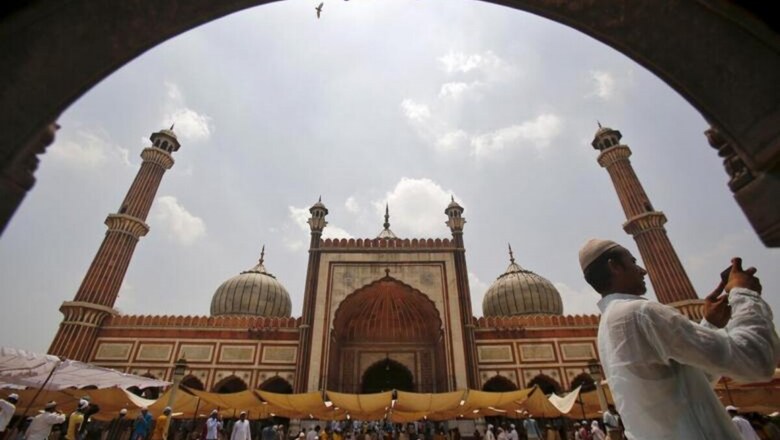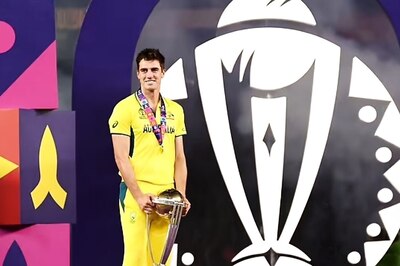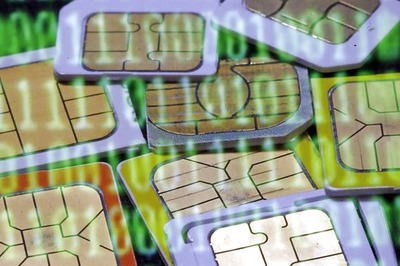
views
The controversy over hijab and ‘halal‘ food was yet to die down that selling meat during Navratri and ‘azaan’ over loudspeakers have become fresh bone of contention. Our first memories of objection to ‘azaan’ (Islamic call to prayer) dates back to 2017 when singer Sonu Nigam had courted controversy with his two-minute video. Posting the clip on social media, in which ‘azaan’ could be heard from his house, Nigam called the “forced religiousness” in India a “gundagardi”.
“God bless everyone. I’m not a Muslim and I have to be woken up by the Azaan in the morning. When will this forced religiousness end in India,” he had said. Annoyed after being woken up by ‘azaan’, Nigam added, “And by the way Mohammed did not have electricity when he made Islam. Why do I have to have this cacophony after Edison? I don’t believe in any temple or Gurudwara using electricity to wake up people who don’t follow the religion. Why then? Honest? True?. Gundagardi hai bus.”
His remarks quickly snowballed into a major controversy, with ‘fatwa’ being issued against him. Some reports said that he later got his head shaved. Over the years, intermittently, many have objected to prayer calls on loudspeakers but recently several politicians have jumped into it, making it hit headlines once again.
What is ‘Azaan’?
Azaan, the Muslim call to prayer, is made five times a day from a mosque, for believers to join the congregational prayer. It is said that Prophet Muhammad had started this practice after he migrated to Medina, and built a mosque there. Deliberating over the method of calling people to the mosque for the periodic prayers, his companions gave a range of options — some suggested ringing a bell, some blowing a horn, and some lighting a fire.
Prophet, however, decided on the human voice (under divine inspiration), and chose a manumitted Black slave, Bilal, for making the call.
What Are Leaders Saying in 2022?
The issue picked pace again after a statement by Raj Thackeray last week. He had said that he is not against any religion but his party workers “will play Hanuman Chalisa in front of mosques if the state government does not remove loudspeakers outside mosques”.
While Maharashtra government was seen taking a balanced stand on his statement. MNS chief got support in Karnataka as minister KS Eshwarappa agreed with him. “This is not a competition for us to play Hanuman Chalisa loudly on speakers to counter them. I have no objections to you (Muslims) offering prayer but because of your using loudspeakers, if prayers are offered at temples and churches also in a similar way, it will lead to conflict between communities,” the minister said.
Later, chief minister Basavaraj Bommai said that he will take a call on the issue, but “not only for azaan, it is for all loudspeakers”. “This is a high court order. It’s not forced. Everything has to be done by talking and explaining to people,” he added, while trying to pacify the row. Last year, the high court had curbed the use of loudspeakers in religious places.
Swinging into action, Bengaluru police have served notices to mosques to keep a check on the volume of the prayer call. Khateeb-o-Imam of Jama Masjid in Karnataka’s capital, Maqsood Imran, said the mosques have started installing devices on their loudspeakers after the notices. “Over 200 to 250 mosques in Bengaluru have received the notice. We have been told to maintain the sound level. They have said that the directions issued by the Supreme Court need to be adhered to and if the orders are not followed then action will be initiated,” the Imam said.
Eshwarappa had also told reporters in Karwar that he has hearing that azaan through loudspeakers disturbs students. “The community has for long followed the tradition of calling for prayers using loudspeakers, and this is an issue even for their own children’s studies,” he added.
An advocate in Haryana’s Panipat has also raised objection to the high-decibel sound of the prayers. In a written complaint to the Superintendent of Police (SP) and District Deputy Commissioner (DC), advocate Mohammad Azam demanded that the loudspeaker be turned off from 10 pm to 6 am.
The advocate mentioned that the high court had issued special orders to keep loudspeakers off from 10 pm to 6 am in Punjab and Haryana. However, the orders are not being followed in Panipat, he added.
Azam further said that loudspeakers are switched on in every district from around 3 am, where azaan and bhajans start playing. “Due to this, children preparing for exams are being disturbed, while patients at hospitals are unable to sleep,” he said.
Allahabad University’s vice-chancellor Sangita Srivastava had also recently complained to the district magistrate that the early morning azaan disturbed her sleep, which affected her productivity at work.
A minister in Bihar, Janak Ram, too has demanded a ban on prayers being recited on loudspeakers. BJP’s ally JDU, however, dubbed the debate over azaan “an attempt to disturb peace. They said that not just azaan, Hindu prayers are too played on loudspeakers. Lalu Yadav’s party RJD alleged that an attempt was being made by some parties to give the issue a communal colour.
Read all the Latest News India and Breaking News here




















Comments
0 comment